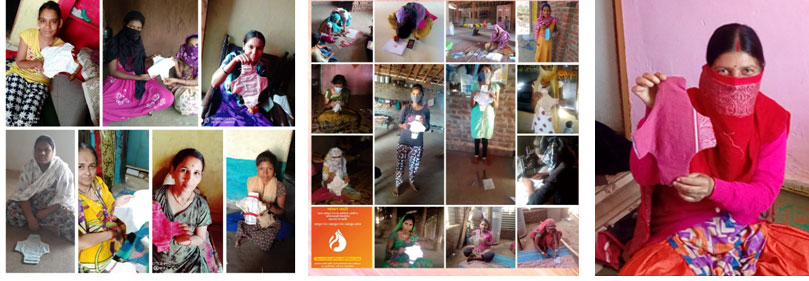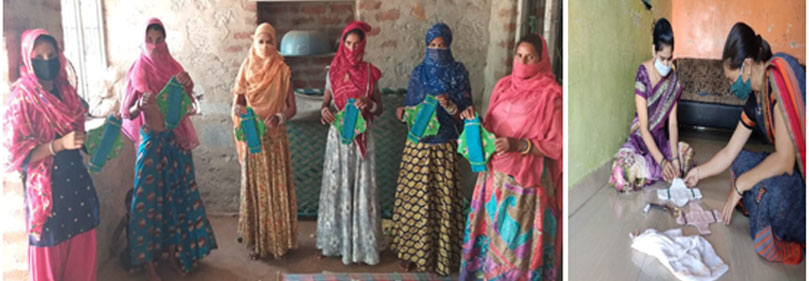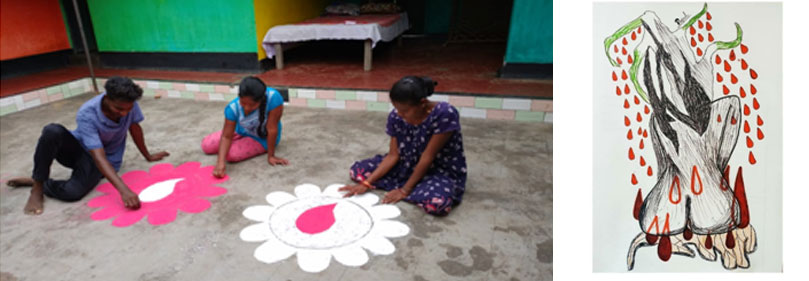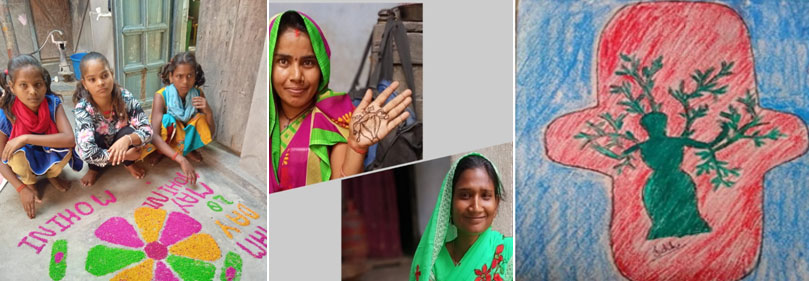To break the silence and normalise menstruation
Tata Water Mission (TWM, an initiative of the Tata Trusts) adopts a twin-pronged approach on interventions, wherein drinking water interventions are dovetailed with sanitation and hygiene. Women are one of the core stakeholders of TWM across geographies and contribute to nearly 50 percent of the outreach. This made menstrual hygiene management a focus area of the programme.
TWM aims to promote safe and effective menstrual hygiene management in around 900 villages over three years, covering a stakeholder base of over 200,000 women and 45,000 men. The programme seeks to build a socio-cultural environment for girls and women to manage menstruation with dignity and without any fear. This is linked with the United Nations’ Sustainable Development Goals, including ‘good health and wellbeing’, ‘quality education’, ‘gender equality’ and ‘clean water and sanitation’.
Why celebrate Menstrual Hygiene Day?
Women undergo menstruation for an average of 5-6 days a month for approximately 40 years, ie, 3,000 days or 8 years in her lifetime. Though menstruation is such a big part of a woman’s life, it is still considered unclean in many societies, and there exists an overpowering silence around it. Taboos, myths and restrictions associated with menstruation leave a negative impact. Therefore, to break the silence and normalise menstruation, May 28 is celebrated as Menstrual Hygiene Day (MH Day) across the world.
Through its Menstrual Hygiene Management (MHM) programme, TWM has been celebrating MH Day for the past four years with its beneficiaries across states. MH Day 2020 celebrations generated a lot of hope, happiness and positivity across TWM beneficiaries and team members.

Given the lockdown, the TWM team used digital mediums to celebrate and engaged with target groups in activities that instilled a new skill / approach in their lives. Various activities were conducted across eight states through AOs and partners, as listed below.
Cloth pad stitching
During the lockdown, accessibility of commercial pads is an issue due to cost and supply. Hence, it was decided to promote cloth pad stitching to make women self-reliant to manage menstruation safely and with dignity. TWM, in an effort to teach women the art of ‘do-it-yourself’ cloth pad making, created a video that demonstrated the step-by-step process to make cloth pads, focusing on crucial information like how to identify 100 percent cotton, washing, drying, storing, how often to change the cloth pad, etc. A few dos and don’ts were also incorporated into the video to ensure safe and hygienic usage. The video was translated into five local languages and was circulated via MHM CRPs to beneficiaries through WhatsApp and other social media channels. TWM was able to reach out to 15,913 people. A total of 2,000 women participated on MH Day and around 600 more participated through the week.

When asked about the feedback on the cloth pad stitching activity, the women said it was a skill that would help them throughout their life. They are happy that they can continue to use cloth, but in a manner which is more comfortable and allows easy movement.
Expressive art
Expressive art activities were conducted to enable women and girls to openly express their relation to menstruation in whatever form they wished to.

A theme was decided upon – ‘Periods don’t stop for pandemics!’. TWM carried out the programme across eight states, reaching out to 2,143 adolescent girls. The team was moved by the responses they received in the form of drawings, poetry, essays, mehandi, rangoli, etc. The art that was created was a beautiful expression of a stigmatised subject by young and old minds. It was proof that they are openly accepting it, rather than continuing to look at it as a taboo. In some states, brothers and sisters came together to develop the art or make rangolis, etc. It was a insightful experience that gave the team perspective on viewing menstruation from the eyes of others.
Quiz competition
TWM decided to conduct a MHM quiz across a targeted audience to do something engaging and participative. A set of 10 questions related to menstruation knowledge, understanding and practice was shared through digital platforms to over 50,000 people across five states on MH Day. It also served as a midline data collection process for the programme. There was great enthusiasm among participants to get the answers correct and win prizes. It also served the purpose of creating conversations around menstruation and behaviour change, which is the primary objective of the programme.
Webinar by gynaecologist through Facebook Live

A webinar was conducted through Facebook Live by Dr Surbhi Singh, a well-known gynaecologist and Founder of Sacchi Saheli -- an NGO working on menstruation. She talked about various myths and common misunderstandings people have regarding menstruation. Dr Singh also gave simple explanations for biological and hormonal processes which most are unaware of due to lack of accurate information and the stigma and silence associated with menstruation. The session was engaging, relevant and informative, and garnered over 200+ live participants and +6,000 views on Facebook. It was a great way to engage with people across sectors and served as a start to many more FB Live events in the future for participative learning and engagement. The field teams were involved in spreading the event to over 133,000 individuals in a span of two days.




